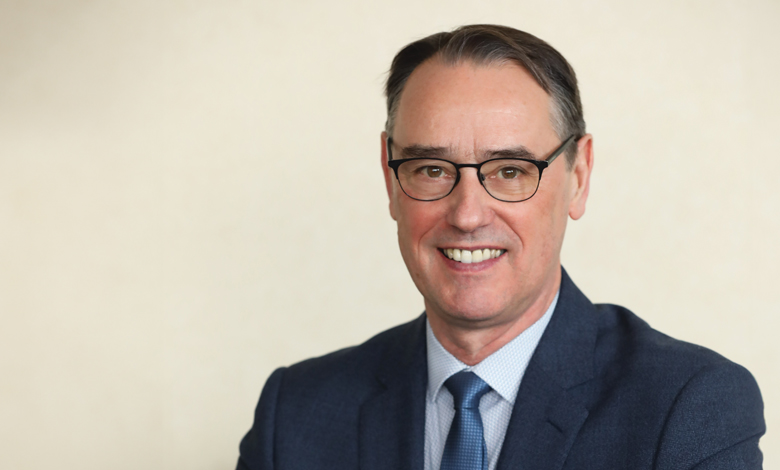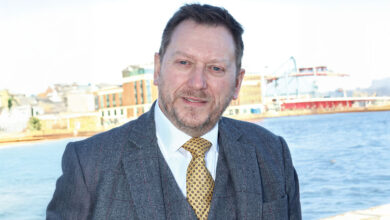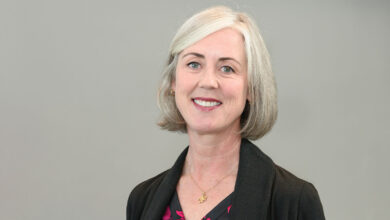Education: An investment for the future

Permanent Secretary for the Department of Education, Mark Browne, discusses planned transformation in a difficult financial climate, and emphasises the importance of education investment in economic growth.
Northern Ireland is a society that continues its transition to a peaceful, modern, outward-looking community. Ambitious programmes to catalyse economic growth, meet our net carbon targets and create a united community, are all important routes on the roadmap to prosperity and resilience. Matching these with a comparably ambitious education agenda is critical.
We have much to celebrate in terms of our education system in Northern Ireland. Our children continue to achieve a very high standard in comparative international studies. Our young people perform higher at both GCSE and A-level than their peers across the UK, whilst our teaching workforce is widely recognised for its skill and expertise.
Vision
Our children get one chance at childhood and the Department of Education can help shape life chances and opportunities from their earliest years in life to young adulthood. This is a tremendous privilege but comes with significant responsibility to ensure that learning experiences and outcomes are of the highest quality for all children.
We have set out a vision that all our children will be happy, learning and succeeding. This applies to each and every child regardless of their background, experience, or ability.
Difficult financial context
However, it is unquestionably more difficult to deliver on this vision in the current financial context. Over the last 10 years, funding per pupil in Northern Ireland has reduced by over 10 per cent in real terms, to the lowest level in the UK. This has put increasing pressure on our schools and reduced the support they can provide to our young people. It has prevented teacher pay increases for the last three years, leading to industrial action and deteriorating industrial relations. The Engage programme to support recovery after Covid and the Healthy Happy Minds Programme to promote emotional and mental wellbeing have had to be closed. School holiday food grants to feed disadvantaged children over school holidays have been ended. The capital programme to improve school premises and support delivery of the curriculum has been severely curtailed.
Education funding: An investment, not a cost
We need to recognise that education spending is not a cost but an investment. It is an investment in our children in the here and now and in our economy and wider society for tomorrow and beyond.
The children in our system today will be those who enter the workforce in future years and it is vital that our education system prepares them as individuals, active citizens, and economic contributors.
Evidence also tells us that investing in the learning experiences and outcomes of our children and young people recoups immeasurable benefits for society in terms of improved outcomes in health, justice, and community cohesion.
Transforming education
We know that targeting investment in the earliest stages of a child’s life reaps longer-term benefits for society. We are developing an ambitious Early Learning and Childcare Strategy which, if funded, would create the ecosystem necessary to give every child the best start in life.
Through the End-to-End Review on Special Educational Needs (SEN), we will refine our policy on inclusive education and redesign support models to ensure our children with SEN receive appropriate support at the earliest point possible. The focus of the review will be on developing a high-quality, cost-effective system that is responsive to the needs of children, ensures their voices are heard, empowers our education workforce and builds the confidence of parents and families.
Increasingly, we recognise that meeting the emotional health and wellbeing needs of our children and young people is crucial to enabling them to engage fully in learning. With that in mind, we have commissioned an evaluation of the Healthy Happy Minds pilot and will draw on its findings and our learning from the rollout of the Emotional Health and Wellbeing Framework to develop a strategic approach to building the resilience of our children and young people.
We are resetting our focus around school improvement – balancing the needs of the learner with the learning experience. This will involve refreshing the current curriculum delivery model and ensuring our curriculum is relevant and fit for the needs of a changing world.
Accompanying this will be a targeted workstream on teacher professional learning that recognises the value of our teaching workforce, invests in their learning and aligns with the needs of a 21st century classroom.
We will take forward a programme of qualifications reform that will ensure that the qualifications taught in our schools are fit for a modern economy and society, and support learners on their chosen pathway.
For our 14 to 19 year-old cohort, we are pursuing a transformative agenda to ensure that young people have seamless pathways and relevant and accurate information to make good educational choices.
Future
Setting and delivering a vision for education is both an exciting and a daunting task. There is no doubt that the current budget settlement will have a significant impact on the quality of our education services and will have the greatest detrimental effect on our most vulnerable children.
So, the Department will be focusing on shaping a strong, coherent narrative on the cross-cutting benefits and value of education and the potential costs to society if we do not invest in the right things and in a sustainable way.
I hope there will be greater recognition of the fundamental value and importance of education for our economy and society and that this will be evidenced through significant and sustained investment. This is the future that our children and young people need and deserve.





